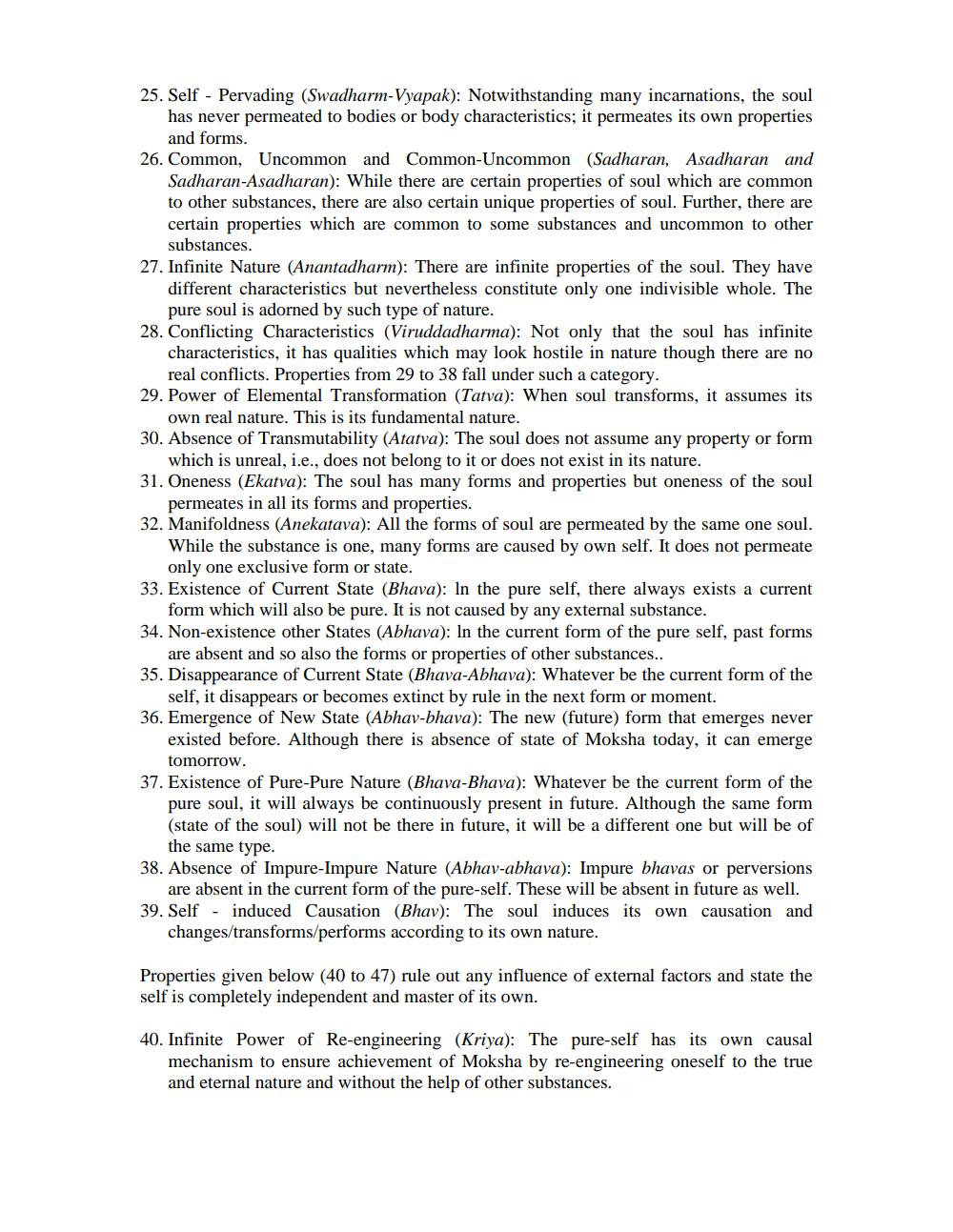Book Title: Key to Moksha Author(s): Jayantilal Jain Publisher: Jayantilal Jain View full book textPage 3
________________ 25. Self - Pervading (Swadharm-Vyapak): Notwithstanding many incarnations, the soul has never permeated to bodies or body characteristics; it permeates its own properties and forms. 26. Common, Uncommon and Common-Uncommon (Sadharan, Asadharan and Sadharan-Asadharan): While there are certain properties of soul which are common to other substances, there are also certain unique properties of soul. Further, there are certain properties which are common to some substances and uncommon to other substances. 27. Infinite Nature (Anantadharm): There are infinite properties of the soul. They have different characteristics but nevertheless constitute only one indivisible whole. The pure soul is adorned by such type of nature. 28. Conflicting Characteristics (Viruddadharma): Not only that the soul has infinite characteristics, it has qualities which may look hostile in nature though there are no real conflicts. Properties from 29 to 38 fall under such a category. 29. Power of Elemental Transformation (Tatva): When soul transforms, it assumes its own real nature. This is its fundamental nature. 30. Absence of Transmutability (Atatva): The soul does not assume any property or form which is unreal, i.e., does not belong to it or does not exist in its nature. 31. Oneness (Ekatva): The soul has many forms and properties but oneness of the soul permeates in all its forms and properties. 32. Manifoldness (Anekatava): All the forms of soul are permeated by the same one soul. While the substance is one, many forms are caused by own self. It does not permeate only one exclusive form or state. 33. Existence of Current State (Bhava): In the pure self, there always exists a current form which will also be pure. It is not caused by any external substance. 34. Non-existence other States (Abhava): In the current form of the pure self, past forms are absent and so also the forms or properties of other substances.. 35. Disappearance of Current State (Bhava-Abhava): Whatever be the current form of the self, it disappears or becomes extinct by rule in the next form or moment. 36. Emergence of New State (Abhav-bhava): The new (future) form that emerges never existed before. Although there is absence of state of Moksha today, it can emerge tomorrow. 37. Existence of Pure-Pure Nature (Bhava-Bhava): Whatever be the current form of the pure soul, it will always be continuously present in future. Although the same form (state of the soul) will not be there in future, it will be a different one but will be of the same type. 38. Absence of Impure-Impure Nature (Abhav-abhava): Impure bhavas or perversions are absent in the current form of the pure-self. These will be absent in future as well. 39. Self - induced Causation (Bhav): The soul induces its own causation and changes/transforms/performs according to its own nature. Properties given below (40 to 47) rule out any influence of external factors and state the self is completely independent and master of its own. 40. Infinite Power of Re-engineering (Kriya): The pure-self has its own causal mechanism to ensure achievement of Moksha by re-engineering oneself to the true and eternal nature and without the help of other substances.Page Navigation
1 2 3 4
